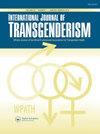The Spanish translation of the World Professional Association for Transgender Health's Standards of Care: Introduction
Q1 Social Sciences
引用次数: 0
Abstract
Over the last couple of years, the World Professional Association for Transgender Health (WPATH) Standards of Care (SOC) have been translated from English into other languages (Arabic, Chinese, Croatian, French, German, Hindi, Italian, Japanese, Korean, Norwegian, Persian, Portuguese, Russian, Serbian, and Spanish). These translations were completed following the publication of Version 7 of the SOC and are available on the WPATH website (Coleman et al., 2011). The Chinese and Spanish translations of the WPATH SOC were among the first languages to be completed. The original English version limited the worldwide dissemination and application of the SOC. Thus, these translations (now numbering 15) are an important tool to promote transgender health in many areas of the world. While the Chinese translation is terribly important because of the size of the Chinese speaking world, the Spanish translation published in this issue of the International Journal of Transgenderism is equally important. It has been estimated that there are 427 million Spanish speaking people in the world, with Mexico having the largest Spanish speaking population followed by the United States and Spain (Simons, 2017). By 2050, the United States is estimated to have the world’s largest Spanish speaking population (Instituto Cervantes, 2016). Latin America has the largest number of countries that speak Spanish and have it as their official language (Simons, 2017). In addition to the size of the population and given the current environment and rapid changes occurring in Spanish speaking countries, this translation has the potential of scaling up transgender health care in an exponential manner. While professional transgender health care workers are reasonably well organized in the United States and Europe (including Spain), they are not as well organized in Latin America. WPATH has only a handful of members from Spain or Latin America. It is understandable that there are not many members from Latin America as WPATH holds its biennial conferences in English without any simultaneous translation and has never held one of its conferences in a Spanish speaking country (however, WPATH will hold its next conference in Argentina in 2018). Regional affiliates of WPATH have formed in Europe, Australia, Canada, and the United States, and most recently in Brazil. Unfortunately, there is not a Spanish speaking professional organization devoted to transgender health to provide a network of professionals working in this field, to develop professional skills, or to advocate for transgender health care. As a result, many professionals providing gender related care are probably not very familiar with the WPATH Standards of Care. There are however, a number of Latin American activist organizations that have fought effectively for transgender rights, including the right to health care (see Table 1 for a list of some of the major organizations). Trans activist organizations have been more effective in organizing themselves than professionals working in the field. The HIV epidemic has disproportionally impacted the trans community and has had a positive impact on community activism and connection with gay men’s organizations, international cooperation agencies, and health services, and consequently fostered powerful trans activist organizations (Serrano-Amaya & da Costa Santos, 2016). Trans activism in Latin America has focused on legal rights essential for health and wellbeing. There are certainly advances in access to health世界跨性别健康专业协会护理标准的西班牙语翻译:导言
在过去的几年里,世界跨性别健康专业协会(WPATH)的护理标准(SOC)已经从英语翻译成其他语言(阿拉伯语、汉语、克罗地亚语、法语、德语、印地语、意大利语、日语、韩语、挪威语、波斯语、葡萄牙语、俄语、塞尔维亚语和西班牙语)。这些翻译是在SOC第7版发布后完成的,可在WPATH网站上获得(Coleman et al., 2011)。WPATH SOC的中文和西班牙文翻译是首批完成的语言之一。原始的英文版本限制了SOC在世界范围内的传播和应用。因此,这些译本(目前有15种)是在世界许多地区促进跨性别者健康的重要工具。由于中文世界的规模,中文翻译非常重要,而发表在本期《跨性别主义国际杂志》(International Journal of Transgenderism)上的西班牙语翻译同样重要。据估计,世界上有4.27亿讲西班牙语的人,其中墨西哥的西班牙语人口最多,其次是美国和西班牙(Simons, 2017)。预计到2050年,美国将拥有世界上最大的西班牙语人口(塞万提斯学院,2016)。拉丁美洲拥有最多的讲西班牙语并将其作为官方语言的国家(Simons, 2017)。除了人口规模之外,考虑到目前的环境和西班牙语国家正在发生的快速变化,这种翻译具有以指数方式扩大跨性别保健的潜力。虽然在美国和欧洲(包括西班牙),专业的跨性别卫生保健工作者组织得相当好,但在拉丁美洲,他们的组织得并不好。WPATH只有少数来自西班牙或拉丁美洲的成员。可以理解的是,来自拉丁美洲的成员不多,因为世界卫生组织两年一次的会议是用英语举行的,没有任何同声传译,而且从来没有在西班牙语国家举行过会议(然而,世界卫生组织将于2018年在阿根廷举行下一次会议)。世卫组织的区域分支机构已在欧洲、澳大利亚、加拿大和美国成立,最近在巴西成立。不幸的是,没有一个讲西班牙语的专业组织专门致力于跨性别者的健康,以提供在这一领域工作的专业人员网络,发展专业技能,或倡导跨性别者的医疗保健。因此,许多提供与性别相关护理的专业人员可能不太熟悉世界卫生适宜卫生组织的护理标准。然而,有一些拉丁美洲激进组织有效地争取变性人的权利,包括获得保健的权利(一些主要组织的名单见表1)。跨性别活动组织在组织自身方面比在该领域工作的专业人士更有效。艾滋病毒的流行对跨性别群体产生了不成比例的影响,并对社区活动以及与男同性恋组织、国际合作机构和卫生服务的联系产生了积极影响,从而培养了强大的跨性别活动家组织(Serrano-Amaya & da Costa Santos, 2016)。拉丁美洲的跨性别行动主义关注的是对健康和福祉至关重要的法律权利。在获得保健方面肯定有进展
本文章由计算机程序翻译,如有差异,请以英文原文为准。
求助全文
约1分钟内获得全文
求助全文
来源期刊

International Journal of Transgenderism
Social Sciences-Gender Studies
CiteScore
5.10
自引率
0.00%
发文量
0
期刊介绍:
International Journal of Transgenderism, together with its partner organization the World Professional Association for Transgender Health (WPATH), offers an international, multidisciplinary scholarly forum for publication in the field of transgender health in its broadest sense for academics, practitioners, policy makers, and the general population.
The journal welcomes contributions from a range of disciplines, such as:
Endocrinology
Surgery
Obstetrics and Gynaecology
Psychiatry
Psychology
Speech and language therapy
Sexual medicine
Sexology
Family therapy
Public health
Sociology
Counselling
Law
Medical ethics.
 求助内容:
求助内容: 应助结果提醒方式:
应助结果提醒方式:


